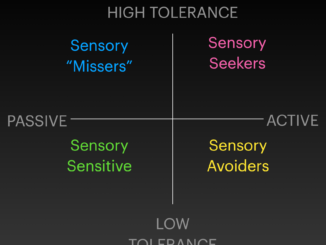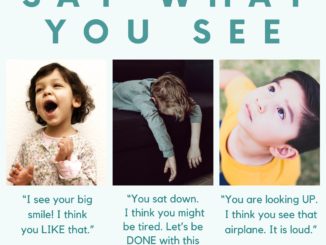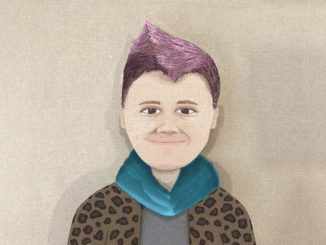Somebody asked, “How can I tell if my child’s reaction to some sensory input is ‘just toddler behavior’ or a sign of some sensory processing difference?”
That’s a very good question. And to some extent, if it feels like so strong of a reaction or so big of an upset that it’s dysfunctional, or it’s interfering with everyday life, then consider seeking out an OT evaluation if that’s something that’s available in your area.
But to some extent, though…not to say it “doesn’t matter”, because it does matter (again, especially if the reactions are interfering with everyday life or they’re unable to tolerate necessary life things like eating or whatever). But like, I didn’t know that I was experiencing a statistically significant amount of sensory processing difficulty until adulthood, until I was literally 26 years old. But I still accommodated for myself as much as I was allowed to my entire life — I didn’t even always know that’s what I was doing — and with parents on board to help with that it would’ve been even easier. And I’m doing the same with my kids.
I guess here’s a couple of examples of what I’m thinking of.
If my child freaks out and refuses to wear shorts and only wants to wear long pants/trousers (true story), then cool. It’s their body. They can decide what they’re wearing. If my child freaks out and refuses to wear the clothes that are their required uniform for school, then it’s time to decide whether I want to seek help in the form of a diagnosis (maybe to help figure out what fabrics they can and can’t handle so we can find them something they can wear, maybe to help fight the school, maybe both).
If my child can’t handle touching sand, then I struggle to think of a time in life where they would be required to touch sand if they don’t want to. I guess if we were going to move to a sandy climate or something like that and I knew it was inevitable to come up a bunch of times then it would be reasonable to seek OT for help.
To some extent—to the extent that it’s not so dysfunctional that it’s interfering with everyday life, or causing an upset, or causing a problem—it doesn’t really matter if it’s “just toddler behavior” or if it’s a sign of some sensory processing difference.
Toddlers are people who are trying to figure out what it means to live in their body and interact with the world and what they like and don’t like. People with statistically significant sensory processing differences are also people who are trying to figure out what it means to live in their body, interact with the world, and what they like and don’t like.
Sometimes that level of “figure out how to live in the world” needs help, and sometimes that help can come from a trusted adult who’s working with them no matter what, and sometimes it needs to come from a professional with a deeper understanding or more ideas. Both are okay.



